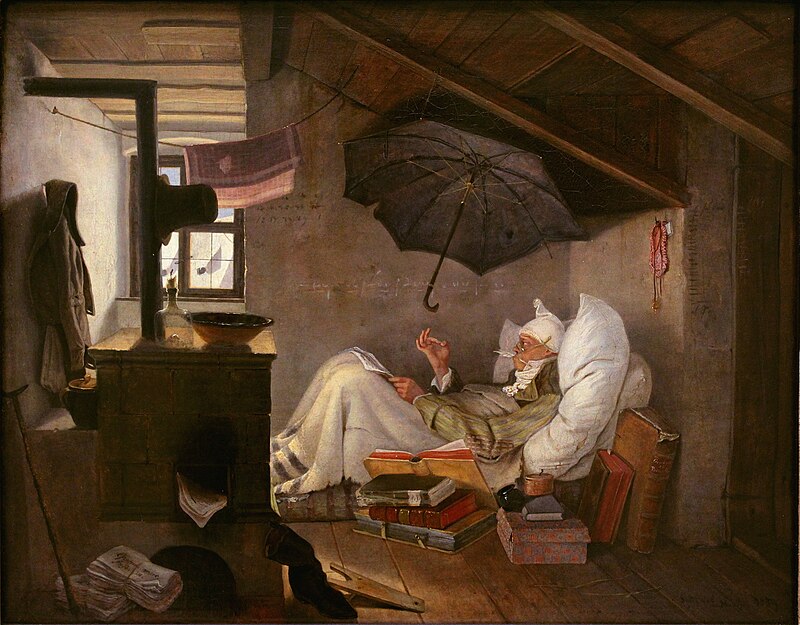All that is needed is attention

Simone Weil
[Spanish version below]
In the work of the French philosopher Simone Weil, the concept of attention acquires a radical dimension. True attention, extreme attention, is the source of all good and all grace. “The authentic and pure values –truth, beauty and goodness– in the activity of a human being are the result of one and the same act, a certain application of full attention to the object.” “Teaching should have no other aim than to prepare, by training the attention, for the possibility of such an act.”
In a movement similar to that of input hypothesis, it seems to Weil that what precedes creation is reception, the brewing of things within, as if it were a pregnancy gestating, until finally comes a moment of output, of gift: “Writing is like giving birth: we cannot help but make the supreme effort.” “The poet produces the beautiful by fixing his attention on the real.” It is as if, before launching into writing, we should go through periods of silence and acceptance, let something grow inside. It is only at the end of that quiet gestation, that preparation, that something will come out of us and be worthwhile.
Seeing the relationship between comprehension and production in this way can improve our dealings with the target language. The subjunctive, for example, one of the great challenges of learning Spanish (or Romance languages in general): I have seen too many times students get stressed about it, when to use it, what triggers it, in which sentences is it a mistake? It can very easily become a headache. Lately, thinking about Weil, I told my students that it was enough if they could, in a text or an audio, notice that a subjunctive had appeared. If at the moment of reading or listening a conjugation sounded out of place, a change in the vowel, a strange root, and an inner voice told them “that must be a subjunctive”: fantastic, the job was done. Little by little, based on these small discoveries, the subjunctive would come out of their own mouths.
This is also explained by the idea of natural order, according to which grammar topics are assimilated in a certain progression that cannot be accelerated or modified. That is, if at the moment of reading or listening students are not able to distinguish between an indicative and “something strange” (for example, between yo tomo and yo tome), this means that they are not yet ready to assimilate the subjunctive. It is from the first instant when it happens that “Wait, why does it say yo tome and not yo tomo? Why that change in the vowel?“, it is only from that point on that a study of the subjunctive should start.
I believe that limiting ourselves to noticing the details, the small changes of a target language, slowly, progressively, rather than rushing to produce them, can promote a less stressful, less agonizing study. In a sense, more relaxed, but only up to a point: extreme attention is an enormous effort. It is also an act of love. Following Weil, I can understand why I am so happy when students start noticing and pointing out subjunctives, it means they are already fond of Spanish.
Todo lo que se necesita es atención
[Please note that the Spanish and English versions are not an exact match]
En la obra de la filósofa francesa Simone Weil, el concepto de atención adquiere una dimensión radical. La verdadera atención, la atención extrema, es la fuente de todo el bien y toda gracia. “Los valores auténticos y puros –verdad, belleza y bondad– en la actividad de un ser humano son el resultado de un mismo acto, una cierta aplicación de la atención plena al objeto.” “La enseñanza no debe tener otro objetivo que preparar, entrenando la atención, para la posibilidad de tal acto”.
En un movimiento similar al de la teoría del input, a Weil le parece que lo que precede a la creación es la recepción, la fermentación de cosas en el interior, como si fuera un embarazo gestándose, hasta que finalmente viene un momento de salida, de don: “Escribir es como dar a luz: no podemos evitar hacer el esfuerzo supremo”. “El poeta produce lo bello fijando su atención en lo real”. Es como si, antes de lanzarnos a escribir, debiéramos pasar por periodos de silencio y acogimiento, dejar que algo crezca dentro. Es solo al final de esa callada gestación, de esa preparación, que algo va a salir de nosotros y valer la pena.
Ver de esta manera la relación entre la comprensión y la producción puede mejorar nuestro trato con el idioma objetivo. El subjuntivo, por ejemplo, uno de los grandes retos de aprender la lengua española (o las lenguas romances en general): he visto demasiadas veces en los estudiantes generarse un estrés al respecto, ¿cuándo usarlo? ¿qué lo activa? ¿en qué frases es un error? Puede muy fácilmente volverse un dolor de cabeza. En el último tiempo, pensando en Weil, les decía a mis alumnos que bastaba con que pudieran, en un texto o un audio, darse cuenta que un subjuntivo había aparecido. Si al momento de leer o escuchar una conjugación les sonaba fuera de lugar, un cambio en la vocal, una raíz extraña, y una voz interior les decía “eso debe ser un subjuntivo”: fantástico, el trabajo estaba hecho. Poco a poco, con base en esos pequeños descubrimientos, el subjuntivo iba a salir de sus propias bocas.
Esto también se explica a partir de la idea del orden natural, según la cual los temas de gramática son asimilados en una cierta progresión que no puede ser acelerada o modificada. Es decir, que si al momento de leer o escuchar los estudiantes no son capaces de distinguir entre un indicativo y “algo extraño” (por ejemplo, entre yo tomo y yo tome), esto significa que todavía no están listos para asimilar el subjuntivo. Es a partir del primer instante en que sucede ese: “Espera, ¿por qué dice yo tome y no yo tomo? ¿Por qué ese cambio en la vocal?“, solo a partir de ese punto es que un estudio del subjuntivo debería iniciar.
Creo que limitarnos a notar los detalles, los pequeños cambios, de un idioma objetivo, lentamente, progresivamente, en vez de apurarnos por producirlos, puede promover un estudio menos estresante, menos angustiante. En un sentido, más relajado, pero solo hasta cierto punto: la atención extrema es un esfuerzo enorme. Es también un acto de amor. Siguiendo a Weil, puedo entender por qué me alegra tanto cuando los estudiantes empiezan a notar y señalar los subjuntivos, quiere decir que están ya encariñados con el español.
Subscribe to the blog by e-mail
You can support my work and get language coaching here.
You can also take a lesson with me on Verbling or on iTalki.







 [Spanish version below]
[Spanish version below]